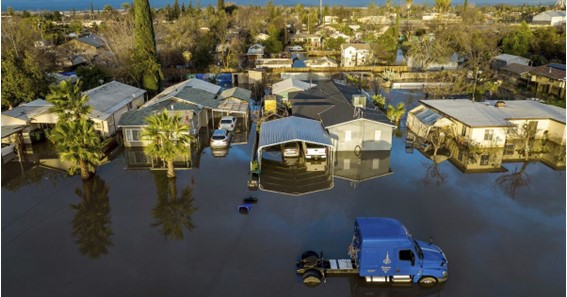Extreme weather events around the world are getting more frequent and more intense. For landlords with properties in flood plains, this presents a kind of risk that must be considered in advance.
To minimise property damage and legal liability, we must respond as quickly and effectively as possible in the immediate aftermath of a flood. This generally means forming a plan of action ahead of time, so that it can be put into motion the moment the need arises.
Should we be worried about summer flooding?
Flooding would be an ongoing concern, even in the absence of climate change. But there’s reason to suppose that sudden flash-flood incidents will become more frequent in the years to come.
It’s not just climate change driving the problem, but a lack of proper space for drainage, and poor infrastructure planning. Put simply, vulnerable areas often have too much tarmac and too few drains. Of course, your property’s proximity to a river will also greatly increase its vulnerability to flood events. If you’re unsure, then you might look into the history of the area, and where the water has come to before.
What can we do to protect our properties?
You can think of flood preparedness as coming in two forms. We need to think about what we can do to prevent a flood from occurring, and how we should react when one does occur.
The first step might be to reconsider whether your properties in high-risk areas are worth keeping. It might be better to sell now than after they’ve been affected by flood damage.
If you decide to keep hold of the properties in question, then you should view flood preparedness as a collaborative effort between you and your tenants. Compose a plan for how you’re going to deal with floods, which includes alternative accommodation and emergency telephone lines.
It’s worth insuring your property against this kind of damage. Specialised landlord insurance will help to drive down your liability.
You should regularly check the flood risk warnings with the Environment Agency. Set up notifications so that you get the earliest notice possible.
Your tenants should know how to react in the event of a flood. This might mean setting up sandbags to keep flood water away from basements and other areas where it might cause significant damage.
You might also look into raising any ground-floor electrical sockets so that they won’t be impacted by water creeping in. The involvement of electricity can create a safety complication that you don’t need, and it could even be lethal. If you know that a property needs maintenance anyway, then raising the sockets might be advisable. In some areas, like kitchens and utility rooms, it might not even look out of place!
